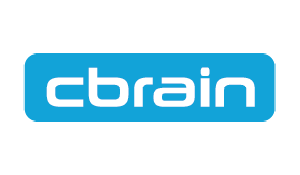CBRAIN
CBRAIN is a flexible Ruby on Rails framework for accessing and processing of large data on high-performance computing infrastructures.
Description
Description
CBRAIN is a web-enabled grid platform that facilitates collaborative research on large, distributed data by creating an interface between a user (or a group of collaborating users) and high-performance computing centres (HPCs). Behind the web-portal, CBRAIN manages data access, transfer, caching and provenance, as well as data processing and reporting. CBRAIN is generic and modular, it can easily be extended with new data models and tools for a broad range of research disciplines.
It has several important capabilities:
- Files may be be stored anywhere: on local servers or on remote servers.
- Files are moved automatically and upon demand (e.g. by user or a task), without interfering with platform components and without the user having to worry too much about their actual location.
- Tasks can be launched at any scale: on local servers or on powerful compute clusters. CBRAIN supports clusters running Sun Grid Engine (SGE), MOAB, Torque/PBS, or simple UNIX processes, transparently. Other adapters are easy to implement.
- Files can be displayed or accessed on the web interface according to their own internal representation. For example a JPEG file can be viewed, or an MRI file can be parsed slice-by-slice on the web interface.
- Files and tasks are deployed as plugins, so a CBRAIN administrator can write his own or simply import them from other developers.
Where does it come from?
The CBRAIN service was originally conceived through a CANARIE grant awarded to Professor Alan C. Evans, at McGill University. The resulting internal code platform was meant to provide easy access to complex neuroimaging computational tools, for clinicians or neuroscience researchers with limited IT resources. Despite the name, the framework is designed to be general, and can accommodate any data and task for any application. This GIT repository contains the generic core of the framework, which is not specific to any field of science.
Who should use CBRAIN?
Any research group that depends on medium to large-scale computational data analysis, can benefit from CBRAIN's data and task management back engine. CBRAIN provides tools for archiving raw and processed data files, viewing them, and processing then in batch. For example, an astronomy researcher's lab could deploy CBRAIN and configure its data servers for storage of its instrument's acquisitions, and to launch its in-house data processing/analysis software on some preconfigured supercomputer cluster.
